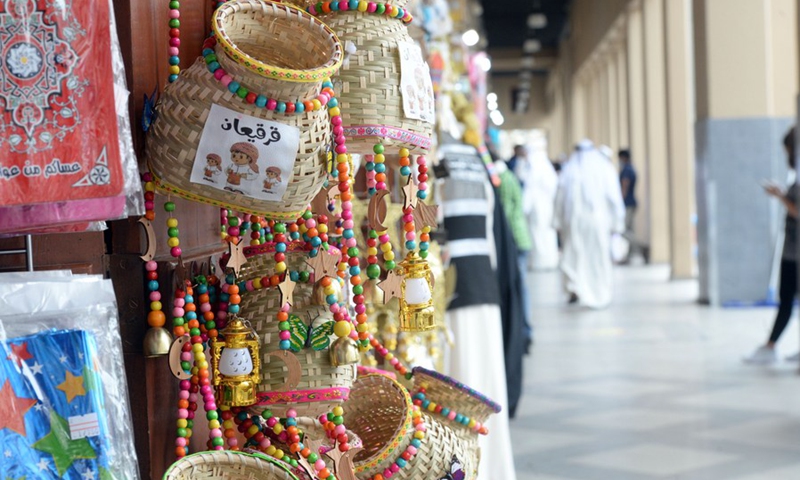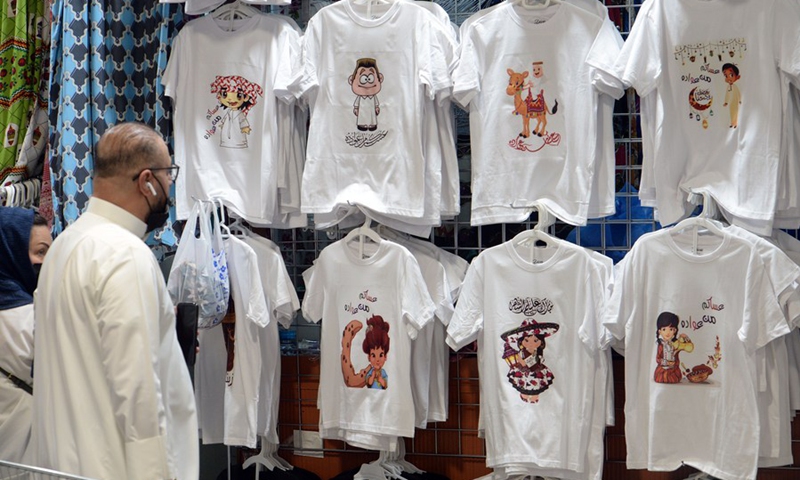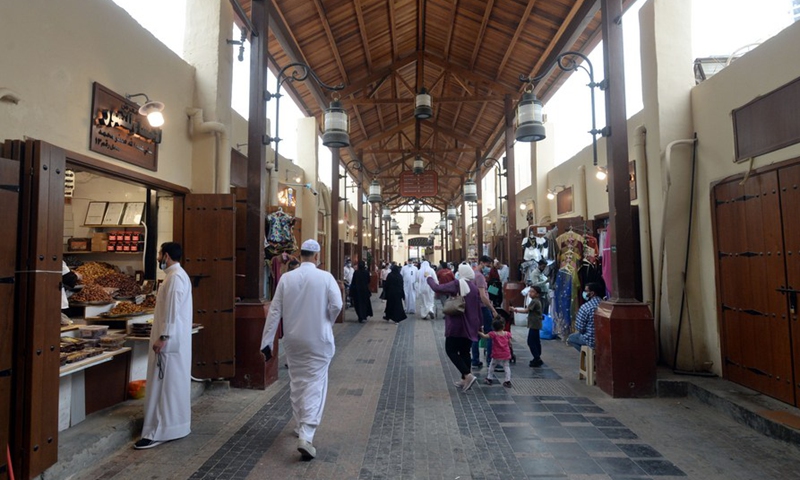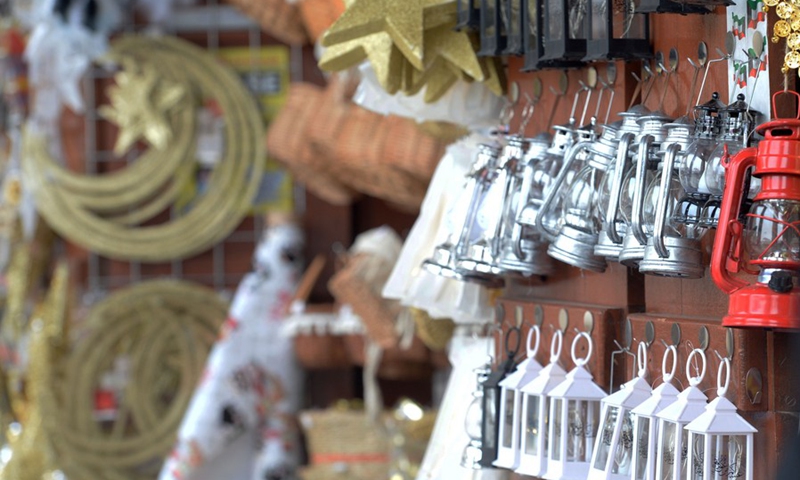Kuwaitis prepare for holy month of Ramadan amid tightened restrictions against COVID-19 spread

Ramadan decorations are seen at Al-Mubarakiya market in Kuwait City, Kuwait, April 10, 2021.(Photo: Xinhua)

People buy Ramadan clothes at Al-Mubarakiya market in Kuwait City, Kuwait, April 10, 2021.(Photo: Xinhua)

People shop at Al-Mubarakiya market in Kuwait City, Kuwait, April 10, 2021.(Photo: Xinhua)

Ramadan lanterns are seen at Al-Mubarakiya market in Kuwait City, Kuwait, April 10, 2021.(Photo: Xinhua)
As the holy month of Ramadan approaches, Muslims in Kuwait prepare for the festival amid tightened restrictions imposed by the government to curb the spread of COVID-19.
Shopping for Ramadan decorations at the old Al-Mubarakiya market in the capital Kuwait City, Nahla Abdulrahim, a pharmacist, told Xinhua that the Ramadan vibes have become the only way to spread relief and joy in her home to make the family forget about this pandemic.
In preparation for the Ramadan, Abdulrahim said she used to buy decorations such as lanterns, hanging stars, banners, dishes, and many other items related to the festival.
Ghadeer Al-Balushi, a housewife, said gold could be bought at a good price at the Al-Mubarakiya market to protect her savings in the light of the current crisis.
Gold is a great investment in a time of economic difficulty, especially when the coronavirus pandemic is not expected to end soon, she explained.
Abdul Hadi Ahmed, a vendor at the market, also groused about the current economic situation.
"The clothing store has recorded heavy losses with the accumulation of goods, especially for this month. Despite the presence of many people in the streets of Mubarakiya, there is low demand for the traditional Ramadan dresses," Ahmed said.
"The curfew prevents people from finishing their work and going for shopping," he added.
Abdullah Qusaibati, a salesman at one of the Mubarakiya stores, said he used to decorate the shop with lighting and flags, but such decorations are now seen as expensive when COVID-19 has drastically changed consumer spending.
In the restaurant area at Mubarkia, chairs and tables seem to have long gathered dust. "This street was used to be full of life," Sayed Al-Znabati, a worker in one of the restaurants, told Xinhua.
Customers have decreased by 20 percent since the outbreak of COVID-19, he said, noting the business in the upcoming Ramadan is unlikely to pick up given the pandemic restrictions and most restaurants do not have delivery service.
"After the instructions that do not allow the customers to sit and eat inside the restaurant, the beauty of a crowded Mubarakiya is gone and now selling is difficult amid the public fear of coronavirus spread," Al-Znabati lamented.
Shopping at a dates shop at the market, Khaled Al-Ali told Xinhua that the month of Ramadan seems to have lost its luster.
"I have been waiting for the family meeting during the Ramadan, to see my children, grandchildren and the families of my brothers and sisters, but now I do not feel that happiness because of coronavirus," he said.
Ali pointed out that the ongoing curfew in Kuwait affects not only adults, but also children who will be prevented from going out to celebrate Gergean in mid-Ramadan this year.
Kuwaiti authorities have extended the nationwide curfew until April 22, now running from 7 p.m. to 5 a.m., which means that gatherings are prohibited during the eating time.
SourceURL:http://www.xinhuanet.com/english/2021-04/10/c_139871559.htm
